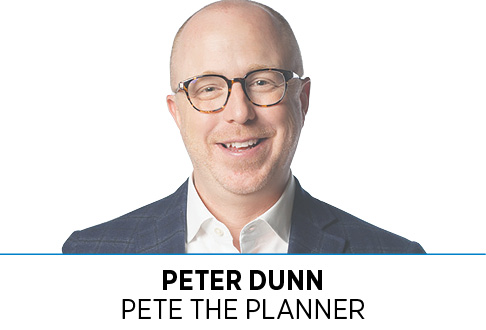Subscriber Benefit
As a subscriber you can listen to articles at work, in the car, or while you work out. Subscribe Now Upon speaking to tens of thousands of people about their money in the last 25 years, I’ve come to a handful of collective conclusions. Some are fascinating, some are boring, and some drive me to build solutions as the CEO of a financial software and coaching company. Today, I want to let you in on two of those realizations: black boxes and blank checks.
Upon speaking to tens of thousands of people about their money in the last 25 years, I’ve come to a handful of collective conclusions. Some are fascinating, some are boring, and some drive me to build solutions as the CEO of a financial software and coaching company. Today, I want to let you in on two of those realizations: black boxes and blank checks.
Most (I know this is a dangerous word) Americans have purposefully placed a black box around their personal finances. They knowingly operate in the world of, “I don’t know,” “I can’t know,” “Who even really knows?” And instead of intentionally working to know, they simply resign their futures to chance.
Even as I type this, I can’t not think about the nutrition choices I make on a regular basis. When convenient, I adopt the same black box mentality. And before nutritional information made its way to menus and packaging, it was quite easy to ignore the impact of my poor decisions. This is to say, I get it. It’s hard.
You don’t know when you’re going to get a nail in your tire that requires a replacement, not a repair. You never know when your dog is going to find your stash of Snickers, thus landing you at the emergency vet. And you surely don’t know when food prices will stop increasing more than your financial anxiety itself. But you do have the ability to know a lot more things about your financial life than you are currently attempting to know.
So here’s the question I have for you today—what is your black box? And how hard would it be for you to bring light to a scenario in which the darkness isn’t serving you as much as you might think?
Then there are blank checks. These are areas of your life in which you freely spend, often with little scrutiny or accountability. Black boxes and blank checks are essentially two sides of the same coin. They are powerful forces that separate us from our money and leave a trail of shoddy justifications and a perceived lack of control.
Whereas you might not realize you have a black box, I’m fairly confident you can identify your blank check.
Let’s begin with a blank check I never thought I’d write, but often do—youth travel sports. Even admitting this for public consumption comes with a side of crow. In a very public national newspaper column about 15 years ago, I wrote a scathing criticism of how much American families are spending on youth travel sports.
And now? Well, at least I’m courageous enough to admit my change in perspective. But there’s no doubt that my household’s blank check is for youth travel sports. It eats our weeknights, weekends, gasoline and tolerance budget for cheap hotel rooms.
Sure, we justify it with what we think are reasonable motivations, but it’s hard to tell whether those explanations hold water. And that’s how blank checks work.
Turn your mind loose and see what you can come up with. I’ll help. Golf, vacations, dining out, grocery stores, home decor, clothing, wine, fitness, books and more hobbies than I can possibly list. Do any of these categories ring a bell?
I know when I read through that list above, I was able to match a name and face to each of the possibilities.
And now for the coup de gras: a blank check with a black box. If they’re one and the same, that’s a problem. There’s no doubt youth travel sports are my household’s blank check, but they surely aren’t our black box. We know exactly what we spend, down to each agonizing penny. But if your blank check is an area in your life in which you have no financial visibility, you need to wake up. I try not to use alarmist language in this column, but the combination of blank check and black box is financially devastating.
You’ll be so satisfied by spending money on your blank check that you won’t sense the pain of your black box. I’m trying not to elicit some macabre analogy here, but it’s more difficult than I imagined. I’ve seen countless financial lives ruined by this poisonous combo. Yes, ruined.
If you happen to be in a committed relationship in which you share finances, discuss blank checks and black boxes with your partner. As you explore your spending together, be open to feedback and don’t be too judgmental as you make observations. And by all means, ensure your black box and blank check aren’t one and the same.•
__________
Dunn is CEO of Your Money Line powered by Pete the Planner, an employee-benefit organization focused on solving employees’ financial challenges. Email your financial questions to [email protected].
Please enable JavaScript to view this content.
